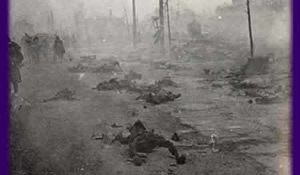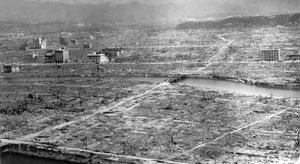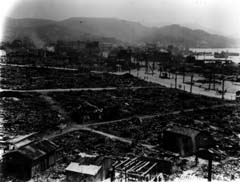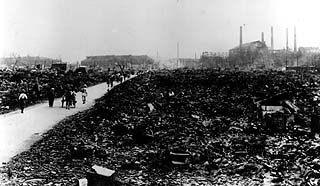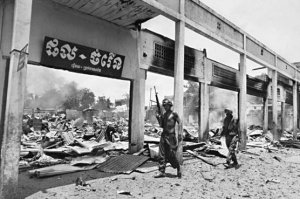Wednesday Lazy Linking
Don’t forget.
The world is awesome.
People are awesome. You don’t need plans, or politics, or power. Put them up against people, and people will win every time. People came up with that video. Also, other people came up with this.
Technological civilization is awesome. (In case you’re wondering, it’s awesome because it’s made of people.)
Books are awesome. Verlyn Klinkenborg, New York Times (2009-05-29): Some Thoughts on the Pleasures of Being a Re-Reader
To-day is awesome. It’s an anniversary. My love and I were married three years ago today. If the normal online rounds are held up for a while, well, that’s why.
Solidarity.
In memory of George Tiller. feministe (2009-05-31): In honor of Dr. Tiller (if you would like to donate in memory and in honor of Dr. Tiller’s work). Among others, the National Network of Abortion Funds has established a George Tiller Memorial Abortion Fund.
IQSN, L.A. I.M.C. (2009-05-27): Solidarity with Queer Bulgaria on 27 June 2009. A day of international actions in solidarity with the LGBTQ Pride march in Sofia, Bulgaria. Last year’s march was attacked by neo-Nazi groups who decided to Keep Our Children Safe with a campaign of roving basher gangs and by slinging molotov cocktails and small explosives at the marchers.
International Queer Solidarity Network calls for a European mobilization, with support from the United States, that will stand in solidarity with Queer Bulgaria
for this year’s march.
News.
Underground abortion networks in Chile. Feminist Daily News Wire (2009-05-29): Abortion Hotline Launched in Chile. The Chilean government inflicted a categorical abortion ban in 1989. A coalition of pro-choice feminist groups has now launched a phone hotline which gives women information about how to use Misopristol (usually used in the U.S. together with Mifepristone; in Chile it’s legally available to treat ulcers) to give themselves safe DIY medical abortions in defiance of the law.
Shoot an unarmed old man, get a four-month paid vacation. Vickie Welborn, Shreveport Times (2009-05-24): NAACP questions Homer officers’ leave status
The question is who is to be the master — that’s all. The Status of Forces Agreement requires all U.S. troops to be withdrawn from Iraqi cities by the end of June. A Senior U.S. Commander
[considers] the security agreement a living document,
so he intends to comply with the deadlines by withdrawing the political boundaries of Baghdad from his occupation patrol forces
Comment.
On knowledge problems and management make-work. quasibill, The Bell Tower (2009-05-28): Scene 3
On free-market mutualism and open source solutions to the social question. Jesse Walker, Hit & Run (2009-05-27): Mutual Aid: A Factor in Cyberspace. (As for whether the word
socialism
is the best tag for the kind of mutualist projects under discussion, I reckon that it depends on your intended audience. I use it happily, but then, my intent in doing so is deliberately provocative, as is my use offreed market
language around anti-authoritarian Leftists: given the right audience, you can pull some philosophical aikido by using a term’s very unpopularity in order to provoke a conversation about some fundamental premises.)The State is male in the political sense. (Cont’d.) Alderson Warm-Fork, Directionless Bones (2009-05-26): The State is Incapable of Submissiveness. (This particular article deals mainly with the external relations among many states; for discussion of the male State in the context of the internal relations between the government and the country that it occupies, cf. GT 2006-05-11: Quidditative essence.)
The George Tiller I Knew. loree920, Daily Kos (2009-05-31): The George Tiller I Knew
A Loatian American teen protested No Child Left Behind and Won. Mandy Van Deven, ColorLines: She Said No To The Test. In which a second-generation Laotian-American who speaks, reads, and writes fluent English and graduated 7th in her class was declared
illiterate
by school officials for refusing to retake a basic English-proficiency test that she’d already aced — and how she and her fellow students protested and won.Yes, Virginia, government roads really are government subsidized, and no, they don’t approximate freed-market outcomes. (Cont’d.) Chris Bradford, Austin Contrarian (2006-05-16): Do roads pay for themseles? (Cf. GT 2008-12-01: Yes, Virginia, government roads really are government subsidized, and no, they don’t approximate freed-market outcomes.
On public space and the microphysics of male power. Norma, Happy bodies. (2009-05-25): Fighting Unwanted Attention
On neuro-jargon as modern mumbo-jumbo. Crispin Sartwell, eye of the storm (2009-05-31)
. . . the problem is that these approaches work backwards from social categories to neurology and enshrine momentary social formations, which are essentially created by power, as inescapable bio-destinies. the entire scientificness of the thing is usually presented in a few phrases – ‘medial prefrontal cortex,’ say – which function essentially as authorities: they’re supposed to show you that you’re too ignorant to assess what’s being said, to put the actual ethical/political/economic conclusions beyond the realm of disagreement, to flummox you into nodding vaguely along. if you don’t, you must be a dolt. they function like phrases from the koran or something. they actually do no work except to assert a kind of prestige. . . .
Against psychiatric coercion and psychiatric contempt. anarchafemme (2009-05-11): I Am Crazy, Yet I Am Human
On standing up for the marginalized and the enemies of the State. Wendy McElroy, WendyMcElroy.com (2009-05-31): The strategic wisdom of defending prostitutes
The Conservative (Hive) Mind. Will Wilkinson’s The rise of collectivist conservatives is right-on in almost every respect, particularly in emphasizing how belligerent nationalism (I’d add sadistic law-n-orderism and anti-immigrationism) poison any attempt by the pseudopopulist Right to come out with a consistently individualistic position. Towards the end, Will asks
Conservatism must stand for something. But here's the big question: Can a politics of individual freedom be revived? Can it win elections?
As you may know, I’m an optimist about the first question, a pessimist about the second, and mainly concerned that people realize that the two are importantly distinct. If you want to know why the substance of Beck’s politics is so much like the substance of Brooks’s politics, underneath the pseudoindividualist rhetoric, well, part of the answer is the structural limitations that you necessarily accept when you start out hitching the success of your political philosophy to victory in government elections.
Historicize.
Jourdon Anderson authenticity update. Laster Hunt,
E pur si muove!
(2009-05-14): Jourdon Anderson’s Letter to His Former Master. (Cf. GT 2009-05-06: Wednesday Lazy Linking for my reprinting of the original letter.)We apologize for the fault in the historicity debate. Those responsible have been sacked. Roderick Long, Austro-Athenian Empire (2009-05-31): Dragonquest; or, A Voyage to Arcturus
Communications.
ALLiance Issue #2 (Beltaine 2009) is now available. Thanks to awesome editor Chris Lempa. This issue features articles by Chris, Darian Worden, Fred Foldvary, Kevin Carson, Michael Kleen, Sharon Presley and Lynn Kinsky.
Portland Anarchist Bookfair, June 6-7 at Liberty Hall, 311 N. Ivy in Portland, Oregon. The event is free to attend; childcare will be provided. Also, keep an eye out for Northwest ALLy Shawn Wilbur, who will be there to promote his new radical publishing project, Corvus Distribution.
The Cop Watch LA Radio program is looking for volunteers interested in recording, producing, interviewing and researching material for the Cop Watch LA radio program which airs every evening on the Raise the Fist Radio Network.
An IRC network for liberty builders: agora.anarplex.net:14716.
The time for waiting for others to do things is over. … Learn, create, cooperate, advance.
(Via Wendy McElroy.)
